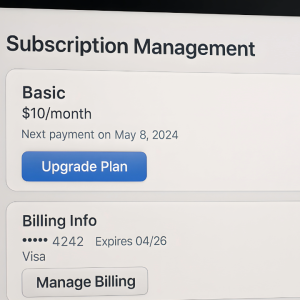The service industry is on the brink of major transformation as we approach 2025. Technological advancements, shifting workforce dynamics, and evolving consumer expectations will all play pivotal roles in shaping the landscape. From automation to hybrid workforce models and fierce global competition, the service industry is facing both exciting opportunities and significant challenges. In this article, we’ll explore what service providers can expect in 2025 and how they can prepare for these changes.
Key Innovations in the Service Industry
1. Automation and AI Integration
One of the biggest innovations to watch in 2025 will be the continued integration of automation and Artificial Intelligence (AI) into the service industry. AI-driven solutions will automate routine tasks, improve customer service, and enhance decision-making. From chatbots offering 24/7 customer support to AI tools analyzing large datasets to predict customer behavior, automation will help businesses deliver faster, more efficient services.
For example, in industries like financial services and healthcare, AI will assist in streamlining administrative processes, enabling service providers to focus on more complex tasks that require human intervention. AI-powered tools will also help businesses optimize their operations by identifying inefficiencies and suggesting improvements in real time.
However, the key challenge will be ensuring a balance between human touch and automation. While customers value speed and efficiency, many still want personalized service and human interaction when needed. Service providers will need to find ways to blend AI with human expertise for a seamless experience.
2. Hybrid Workforce Models
The rise of remote work during the pandemic has had a lasting impact on how service industries operate. In 2025, hybrid workforce models—where employees work both in the office and remotely—will become the norm in many service sectors. Service providers will need to adopt flexible work arrangements to attract and retain top talent while maintaining productivity.
For businesses, the shift to hybrid models will require investment in digital collaboration tools, secure remote access systems, and training programs to ensure that employees can work efficiently, no matter where they are. Additionally, managers will need to adopt new strategies for tracking performance and fostering collaboration in a decentralized workforce.
However, remote and hybrid work also presents challenges related to team cohesion, communication, and company culture. Service providers will need to find ways to maintain strong employee engagement and keep teams aligned, even in a dispersed work environment.
3. Global Competition and Market Expansion
The service industry has always been competitive, but in 2025, global competition will intensify as companies embrace digital transformation and expand their reach across borders. As businesses move more of their operations online, they’ll gain access to new markets, but they’ll also face increased competition from companies around the world.
To stay competitive, service providers will need to focus on differentiation—offering unique value propositions that set them apart from competitors. This might include specialized expertise, superior customer service, or unique service delivery models. Additionally, businesses will need to invest in technology and infrastructure that allow them to serve global markets efficiently, while navigating challenges like different regulatory environments, cultural nuances, and time zone differences.
4. Customer-Centric Innovations
As consumers continue to expect more personalized, efficient, and seamless experiences, service providers will need to innovate to meet these demands. Customer experience (CX) will continue to be a key driver of business success in 2025. Service providers will invest in data analytics and CRM systems to understand their customers better and deliver tailored experiences.
New tools and technologies will enable businesses to collect and analyze customer data in real-time, helping them anticipate needs and provide proactive service. Additionally, businesses will leverage omnichannel strategies, allowing customers to seamlessly engage with companies across multiple platforms—whether it’s via phone, chat, social media, or in-person.
Key Challenges Facing the Service Industry
1. Talent Acquisition and Retention
In 2025, the war for talent will continue to be a pressing challenge for service providers. As the demand for skilled professionals grows, businesses will need to find new ways to attract and retain top talent. This includes offering flexible work arrangements, investing in employee development, and creating positive company cultures.
With the rise of automation, certain roles will become obsolete, but new opportunities will arise for employees with digital and technical skills. Service providers will need to invest in reskilling and upskilling their workforce to ensure that employees can thrive in the changing job market.
2. Cybersecurity and Data Privacy
As service providers adopt more digital tools and collect more data, the risks associated with cybersecurity and data privacy will increase. Protecting sensitive customer information will be more critical than ever in 2025, especially as regulations around data privacy continue to tighten.
Service providers will need to invest in robust cybersecurity frameworks and ensure that their employees are well-trained in data protection best practices. The increasing use of AI and automation also introduces new risks, as businesses will need to be vigilant about potential AI-driven vulnerabilities.
3. Meeting Rising Customer Expectations
As mentioned, customers are becoming more demanding, expecting faster, more personalized service across all touchpoints. Service providers will need to continuously innovate and improve their offerings to meet these rising expectations. Speed, personalization, and convenience will be key factors in delivering exceptional service.
Service providers must also focus on transparency and trust—customers expect businesses to be honest and upfront about their processes, pricing, and policies. Businesses that can build strong, trust-based relationships with their customers will be best positioned for success in 2025.
Navigating the Changes with MPS (My Premium Service)
As the service industry evolves, businesses must adapt to these shifts in order to stay competitive and deliver exceptional value to their customers. At MPS (My Premium Service), we provide the tools and resources service providers need to navigate these changes effectively.
From employee management solutions to advanced customer service tools, MPS offers comprehensive support for businesses looking to embrace the future of services. Our platform helps companies optimize their operations, enhance customer experiences, and prepare for the challenges ahead.
Ready to embrace the future of services? Visit MPS today to explore our tools and resources designed to help your business thrive in 2025 and beyond.
Resources:
- Accenture Insights
- World Economic Forum
- Gartner Research
Keywords: future of services, service industry 2025, service innovations, hybrid workforce, customer-centric service, automation in services, global competition






